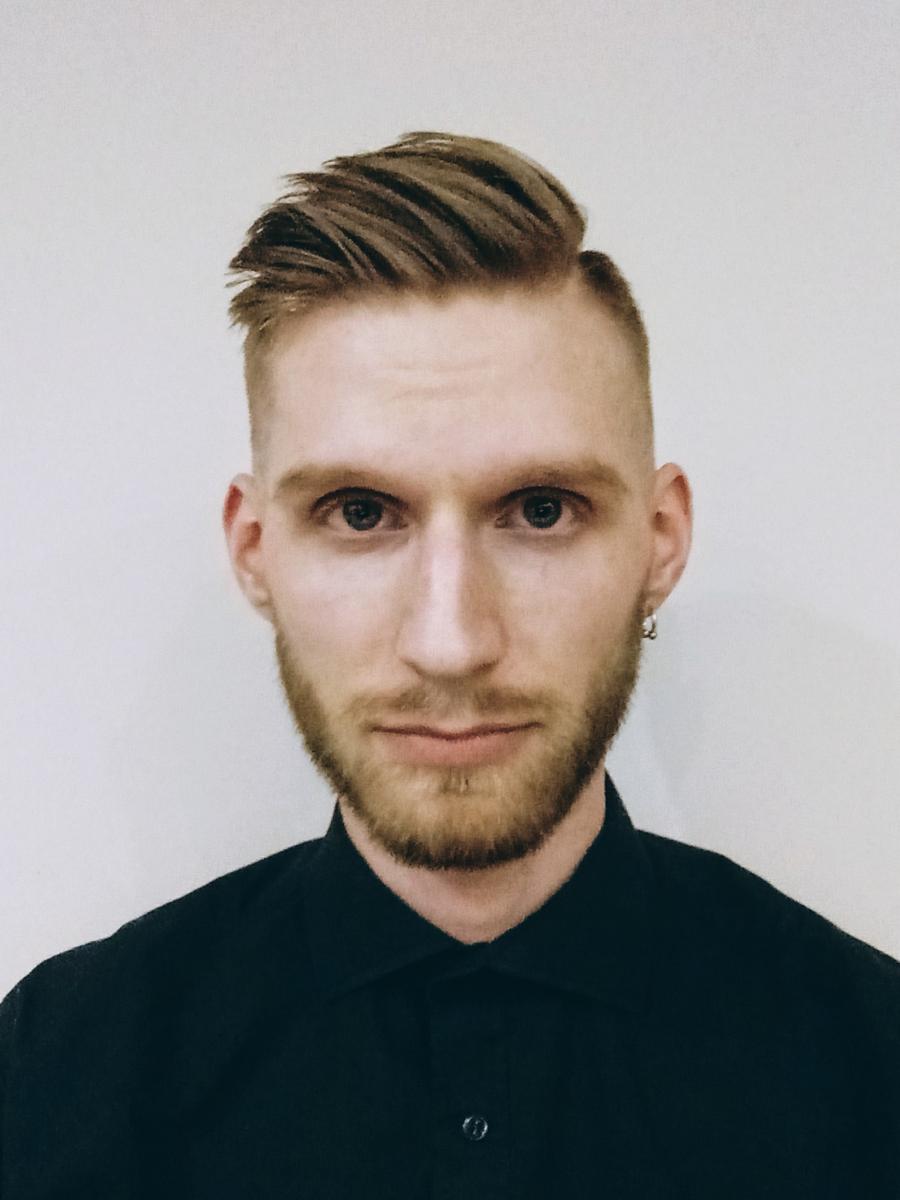Jan Topczewski, Poland
Could you please tell us a little about you and your background?
My name is Jan Topczewski. I am a 1st year student of PhD programme in psychology at SWPS University of Social Sciences and Humanities in Warsaw, Poland. I’m also engaged in LGBTQ mental health activism - I work as acounsellor and training consultant in LGBTQ crisis hotline hosted by Lambda Warsaw Association. We are one of the very few organisations providing free mental health services (individual and group therapy, workshops, email counselling, crisis hotline) for gender and sexually diverse folks, and currently the only one doing it on a country-wide scale. We serve individuals who experienced extreme violence and abuse based on their sexual orientation and gender identity, “conversion therapy” survivors, LGBTQ minors or people coming from low socioeconomic background who cannot afford counselling with properly trained and culturally-sensitive clinicians.
How did you become interested in CBS?
In 2014, during my 1st year of BA in psychology, I attended Joe Oliver’s brief workshop on using ACT with people with unusual (psychotic) experiences. It was my first contact with Relational Frame Theory and concept of experiential avoidance. I found it really compelling, but I had not fully appreciated it until I started reading about CBS approach in general. For me pragmatic roots, depathologizing stance towards human suffering and sensitivity to social justice were especially important aspects. It turned out that combining scientific “precision, scope and depth” with deep social engagement is possible and people are already doing it. I knew I had to get on board.
Could you tell us about your research and application interests?
My PhD research project is focused on functional-contextual account of self/perspective taking difficulties in people coming from violent, invalidating environments (and commonly labeled as having “borderline personality disorder”). My hope is that recent developments in RFT will prove to be useful in understanding self(ing)-related challenges faced by people with such experiences.
As a practitioner, I’m very much interested in applying mindfulness and acceptance-based approaches to empower the LGBTQ community. Moreover, the intersection between critical psychology and contextual behavioral science is very relevant for my work. Every day I see how providing psychological support for individuals without addressing cultural practices contributing to "problems in living" is not enough. Hence, my interest is also in PROSOCIAL approach, the work of Bernard Guerin and in experimental communities inspired by B.F. Skinner’s Walden Two.
Could you tell us about your experience at the World Conference this year?
It was a period of intensive experiential learning. I was doing mainly RFT track and every day I had some "aha" moments. Entering new community without knowing almost anyone was very challenging, but it gave me the opportunity to talk and share with many people. There was a lot of "small things" that made a huge difference - smiles, meaningful conversations, acts of encouragement, tears, hugs. After six months, the memories are still vivid and heartwarming.
Was there anything that stood out to you about the CBS community?
Egalitarianism. People were approachable and warm regardless of their degree and profession. I felt the spirit of openness and cooperation instead of competition. Scientific culture shaped in such manner is absolutely unique.
What did you take back from your experience that has been helpful to you?
I refined my understanding of empirical and conceptual advances in RFT, which really helps me with my doctoral research. I also had the opportunity to take first steps towards collaboration with other CBS labs.
At the same time it was an important week for clinical skills building. Attending workshops such as “Process-based CBT, Sexual Orientation, and Gender Diversity” facilitated by Aisling Curtin, Matthew Skinta and lore dickey reoriented my development as a counsellor. During deeply moving real-play with Aisling, I remember thinking: “This is really how I want to work...”
Do you have anything else that you would like to share with the community?
I'd like to express my gratitude to DEI Committee and numerous donators. This experience wouldn't be possible without your hard work and support. Thank you!
Are you wondering how you can help to disseminate CBS in the developing world through scholarship opportunities like this? Please consider donating to the Diversity, Equity and Inclusion Fund via Paypal by using the button below. Your donation will help us continue to bring increased diversity to our annual conferences by providing funds for individuals who come from diverse backgrounds and who would not be able to attend an ACBS conference without this added financial support.
Every dollar/euro/yen goes to helping those in need -- not a nickel goes to administration. Money collected for this fund is distributed by an ACBS Diversity, Equity and Inclusion committee. Scholarships are awarded based on need and merit.
Please note that this contribution does not qualify as a tax-deductible charitable contribution, according to USA tax law ... but it's a nice thing to do.
